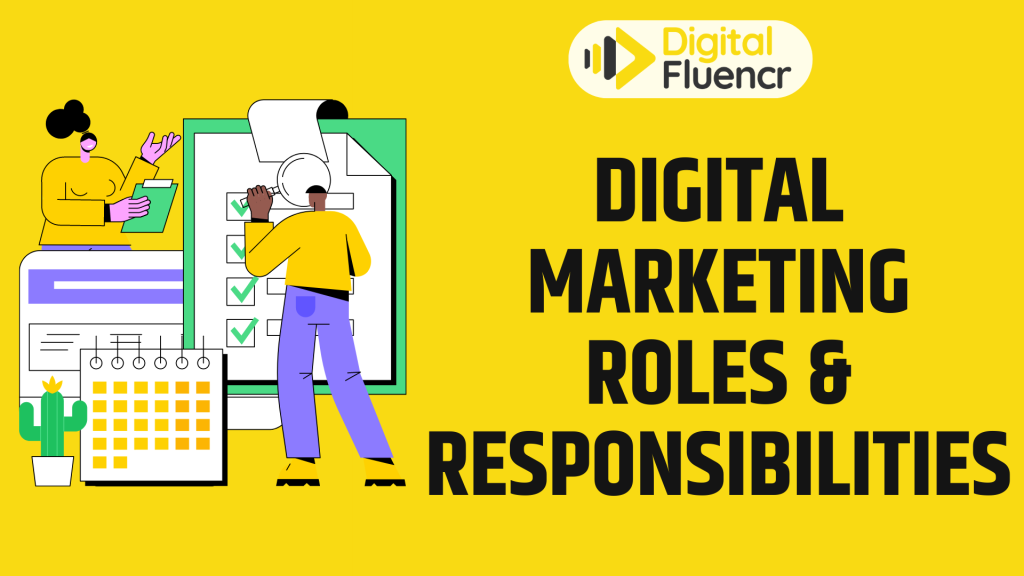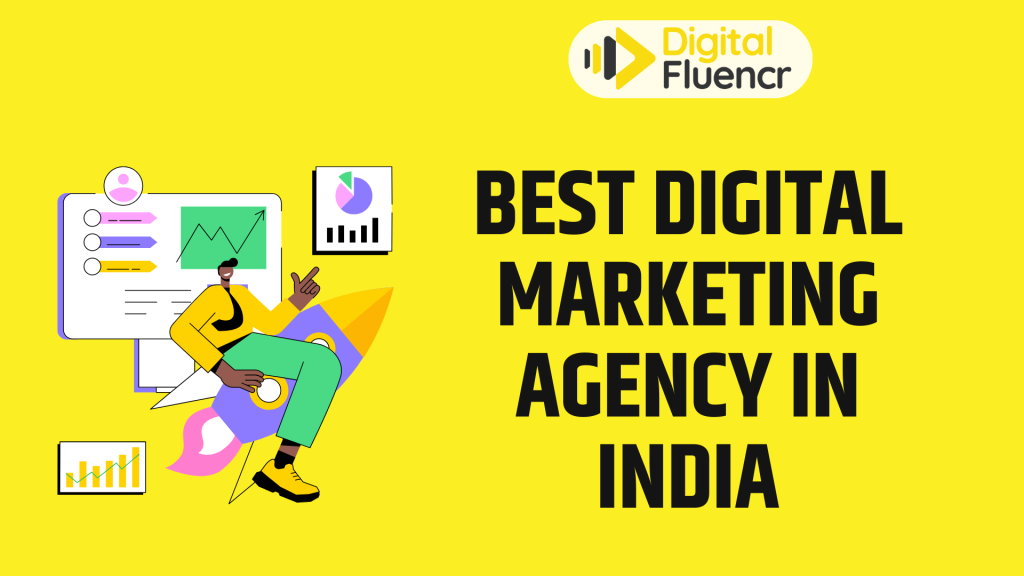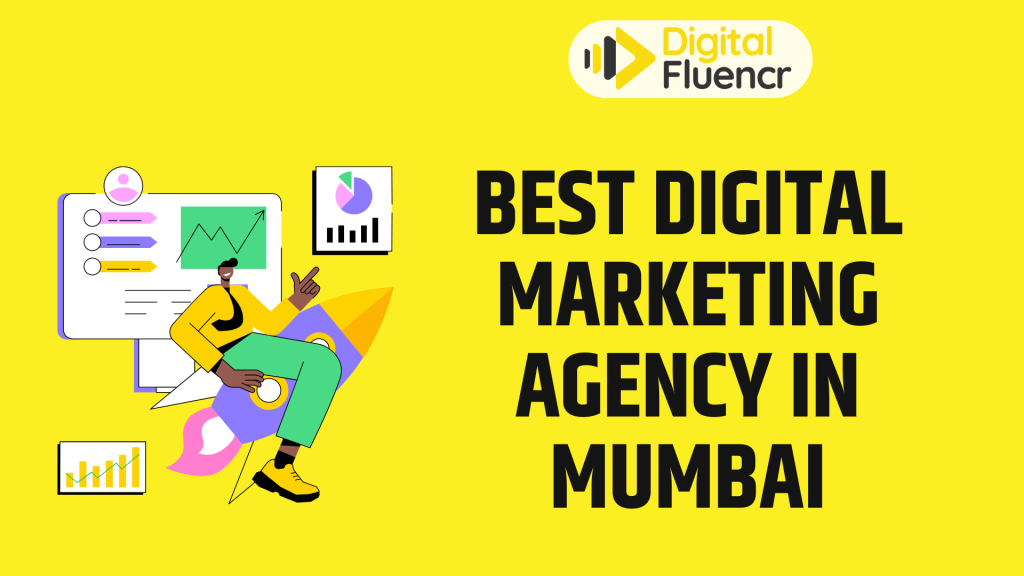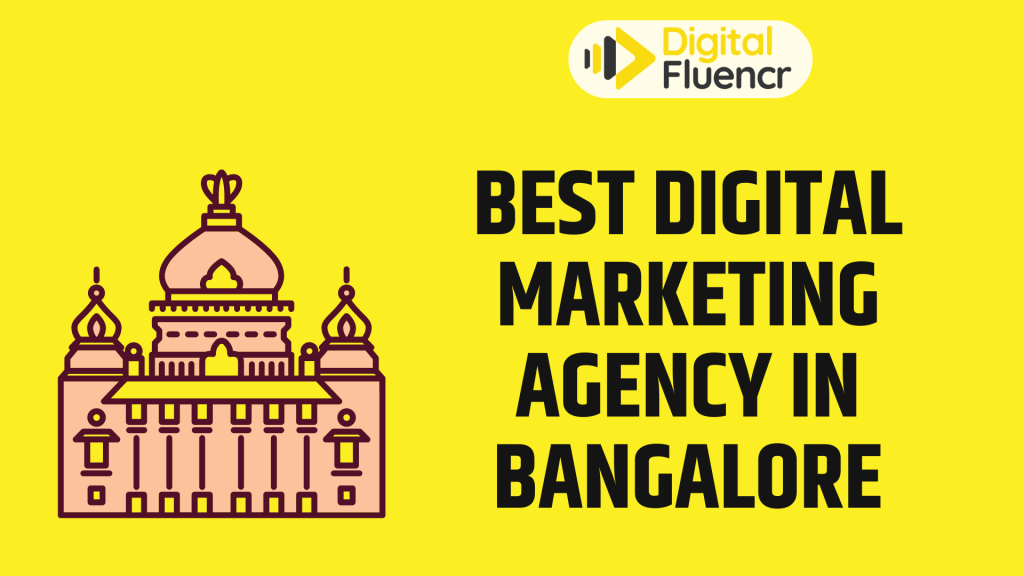Digital marketing has become essential to modern business strategies, enabling companies to reach and engage their target audience effectively.
For a marketing campaign to be successful, you need to be well aware of the roles and responsibilities of digital marketing.
From social media managers and SEO specialists to content marketers and paid advertising specialists, these professionals bring their unique skills and expertise to enhance brand visibility, increase conversions, and optimize online presence.
This article explores the diverse roles and responsibilities within digital marketing, shedding light on each role’s key contributions to the overall success of marketing efforts in the digital landscape.
Let’s quickly delve into Digital Marketing Roles and Responsibilities.
What do Digital Marketers Do?
Digital marketers are professionals responsible for planning, implementing, and managing marketing campaigns in the online space.
Their primary goal is to promote products or services using digital channels such as search engines, social media, email, and websites.
Digital marketers leverage data-driven insights to make informed decisions and optimize campaigns for maximum performance and return on investment (ROI).
Roles and Responsibilities of Digital Marketing
As technology and online platforms advance, new roles are emerging in the digital marketing industry to meet the demand for result-oriented strategies in social media.
1. Digital Marketing Manager
The development and implementation of digital marketing strategies fall within the responsibility of the digital marketing manager. They look after the entire digital marketing team and ensure the coordination of various campaigns.
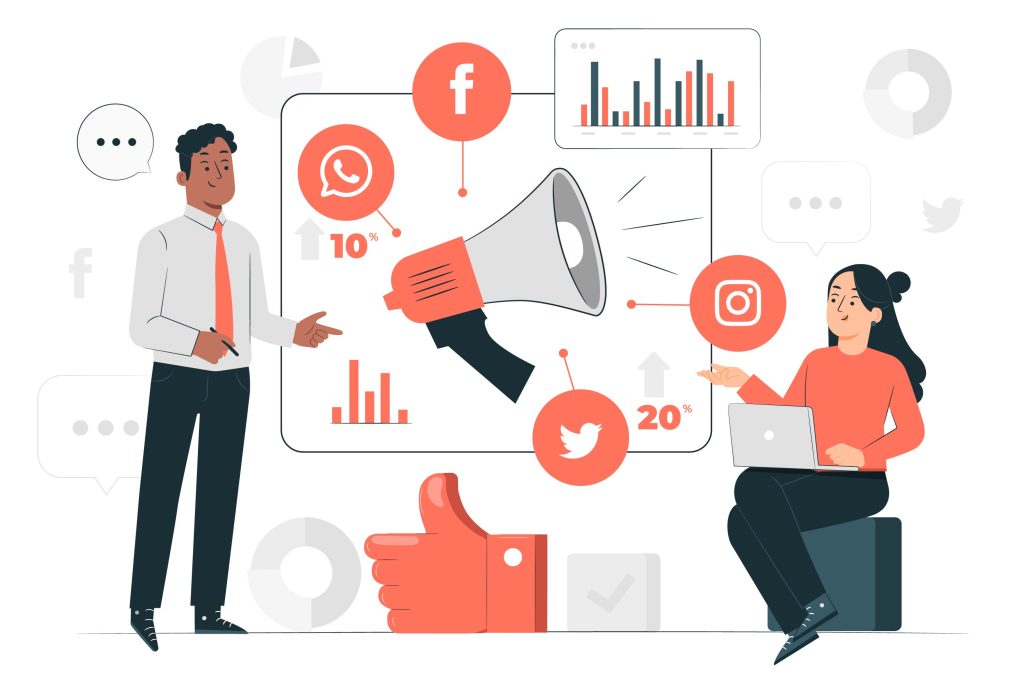
Digital Marketing Manager Key Responsibilities:
- Develop and execute digital marketing strategies.
- Manage and optimize online advertising campaigns.
- Conduct search engine optimization (SEO) activities.
- Monitoring and reporting on marketing campaign performance.
- Utilize analytics tools to track website traffic and user behavior.
2. Social Media Manager
A social media manager is a person who looks after developing and executing social media strategies to increase brand awareness and engagement.
They stay updated with the latest social media trends and use them effectively to reach the target audience.
With their expertise, businesses can harness the power of social media to build a strong brand presence, foster meaningful relationships, and achieve marketing objectives in the digital realm.

Social Media Manager Key Responsibilities:
- Create and manage social media content calendars.
- Develop and implement social media strategies to achieve business objectives.
- Monitor social media trends and industry developments.
- Collaborate with other departments to align social media efforts with overall marketing strategy.
- Identify and collaborate with influencers or brand ambassadors.
3. SEO Specialist
SEO specialists play a crucial role in optimizing websites and content for search engines, ultimately improving their visibility and organic rankings.
They specialize in optimizing websites and content to improve their rankings on search engine results pages (SERPs).
They possess a deep understanding of search engine algorithms and employ various techniques to enhance a website’s visibility and drive targeted organic traffic.
SEO Specialist Key Responsibilities:
- Conduct keyword research and analysis.
- Create and put into action on- and off-page SEO strategy.
- Improve the content and organization of your website for search engines.
- Monitor and improve website rankings on search engine results pages (SERPs).
- Build and manage backlink profiles to improve the domain authority.
4. Content Marketer
A content marketer is a professional who specializes in creating, strategizing, and distributing valuable and relevant content to attract and engage a target audience.
They play a critical role in building brand awareness, driving website traffic, and nurturing customer relationships through compelling content.
They primarily focus on producing high-quality content, optimizing it for search engines, and distributing it through various channels.
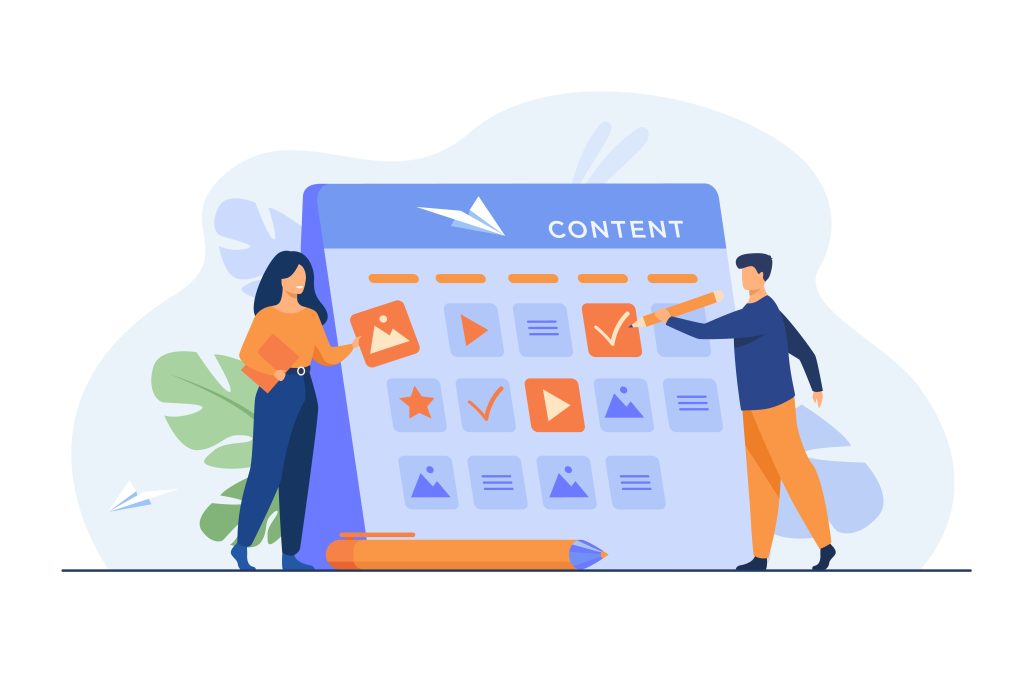
Content Marketer Key Responsibilities:
- Create high-quality and engaging content.
- Optimize content for search engines (SEO).
- Conduct audience research to understand target audience needs and preferences.
- Develop and execute a content marketing strategy.
- Develop a content calendar and manage content production timelines.
5. Paid Advertising Specialist
A paid advertising specialist is someone who plans, puts into action, and improves paid advertising campaigns on different digital platforms.
They are also known as paid media specialists or PPC specialists. Their primary focus is to drive targeted traffic, increase brand visibility, and generate conversions through effective paid advertising strategies.
Paid Advertising Specialist Key Responsibilities:
- Develop and execute paid advertising strategies.
- Conduct A/B testing to optimize ad variations.
- Create compelling ad copy and visuals.
- Generate reports on campaign performance.
6. Email Marketing Specialist
An email marketing specialist is an expert who specializes in creating, implementing, and optimizing email marketing campaigns.
Their primary role is to utilize email as a channel to engage, nurture, and convert leads into customers while maintaining and enhancing relationships with existing customers.
They focus on delivering personalized and relevant email content, managing email lists, analyzing performance metrics, and staying updated with industry trends to drive engagement, conversions, and customer retention.

Email Marketing Specialist Key Responsibilities:
- Develop and execute email marketing strategies.
- Manage email lists and segment audiences.
- Conduct A/B testing to optimize email performance.
- Monitor and analyze email campaign metrics.
- Integrate email marketing with CRM systems.
7. Conversion Rate Optimizer
A Conversion Rate Optimizer (CRO) works to improve the conversion rate of a website or landing page.
They are responsible for analyzing user behavior, identifying barriers to conversion, and implementing strategies to optimize the website or landing page for higher conversion rates.
The ultimate goal of a CRO is to maximize the number of visitors who take the desired action, such as making a purchase, filling out a form, or subscribing to a service.
Conversion Rate Optimizer Key Responsibilities:
- Evaluate and optimize user experience (UX) design.
- Conduct A/B testing and multivariate testing.
- Analyze user behavior and conversion data.
- Simplify and optimize forms and checkout processes.
- Create and optimize landing pages for campaigns.
8. Graphic Designer
A graphic designer is an expert who specializes in creating graphics and designs to communicate messages and ideas effectively.
Graphic designers use various tools and software to combine typography, images, colors, and layout techniques.
They work on various projects, both print and digital, collaborate with clients and teams, and apply design principles and creativity to produce visually appealing and impactful designs.

Graphic Designer Key Responsibilities:
- Design print and digital materials.
- Develop design concepts and ideas.
- Create visual identities and brand elements.
- Choose and use appropriate typography.
- Design marketing collateral and materials.
9. Project Manager
A project manager specifically works on planning, executing, and overseeing the projects to achieve specific goals within the defined time and budget.
They are skilled in leading teams, coordinating resources, managing risks, and ensuring project success from initiation to completion.
They provide leadership, ensure project goals are achieved, and facilitate effective communication and collaboration among team members and stakeholders throughout the project lifecycle.
Project Manager Key Responsibilities:
- Develop and execute digital marketing project plans.
- Allocate and manage digital marketing resources effectively.
- Coordinate and manage digital marketing campaigns.
- Monitor and track project progress and milestones.
- Ensure timely and successful project delivery.
10. Web Developer
Talking about Web developers, they specifically look after creating, designing, building, and maintaining websites.
They use various programming languages, coding techniques, and web development tools to create visually appealing and functional websites.
They collaborate with stakeholders, optimize website performance, ensure cross-browser compatibility, and stay updated with industry best practices to create functional and visually appealing websites.

Web Developer Key Responsibilities:
- Develop and code websites.
- Build and manage back-end infrastructure.
- Perform website maintenance and updates.
- Implement front-end design and user experience.
- Integrate websites with content management systems (CMS).
11. Copywriter
Copywriter is an individual who specializes in creating written content for various marketing and advertising purposes.
Their main responsibility is to craft persuasive and compelling messages that effectively communicate a brand’s value, engage the target audience, and drive desired actions.
They conduct research, develop brand messaging, collaborate with stakeholders, and continuously refine their writing techniques to create impactful copy across various marketing channels.
Copywriter Key Responsibilities:
- Create written content for marketing and advertising purposes.
- To learn about the requirements and preferences of your audience, conduct research.
- Tell engaging stories to captivate the audience.
- Develop and maintain consistent brand messaging.
- Edit and proofread copy for accuracy and clarity.
12. Influencer Marketer
Influencer marketers work with well-known people to market goods and services to their audience. They oversee influencer campaigns, partner negotiations, and influencer identification.
Influencer Marketers leverage the reach and credibility of influencers to increase brand awareness, generate leads, and drive conversions.

Influencer Marketer Key Responsibilities:
- Identifying relevant influencers for partnership opportunities.
- Negotiating contracts and managing influencer campaigns.
- Building relationships and collaborations with influencers.
- Managing influencer budgets and ensuring ROI.
- Maintaining communication and fostering long-term relationships with influencers.
Related Reads
- Types Of Digital Marketing
- Advantages of Digital Marketing
- Disadvantages Of Digital Marketing
- Evolution of Digital Marketing: A Timeline of Key Events
Final Verdict: Digital Marketing Roles and Responsibilities
Digital marketing is a constantly expanding profession with a wide range of options.
The roles and responsibilities of digital marketers vary depending on the specific company and industry, but they all require a strong understanding of online marketing principles and techniques.
If you are interested in a career in digital marketing, there are a few things you can do to prepare: get certified, gain experience, and network with other professionals.
With hard work and dedication, you can build a successful career in this exciting field.
FAQs: Digital Marketing Roles and Responsibilities
Essential skills for a career in digital marketing include strong communication, creativity, analytical thinking, and a solid understanding of digital marketing tools and platforms.
Content marketing plays a crucial role in digital marketing by providing valuable and relevant content that attracts and engages the target audience, driving brand awareness and conversions.
Yes, social media marketing is an integral part of digital marketing. It allows businesses to engage with their audience, build brand loyalty, and drive website traffic.
